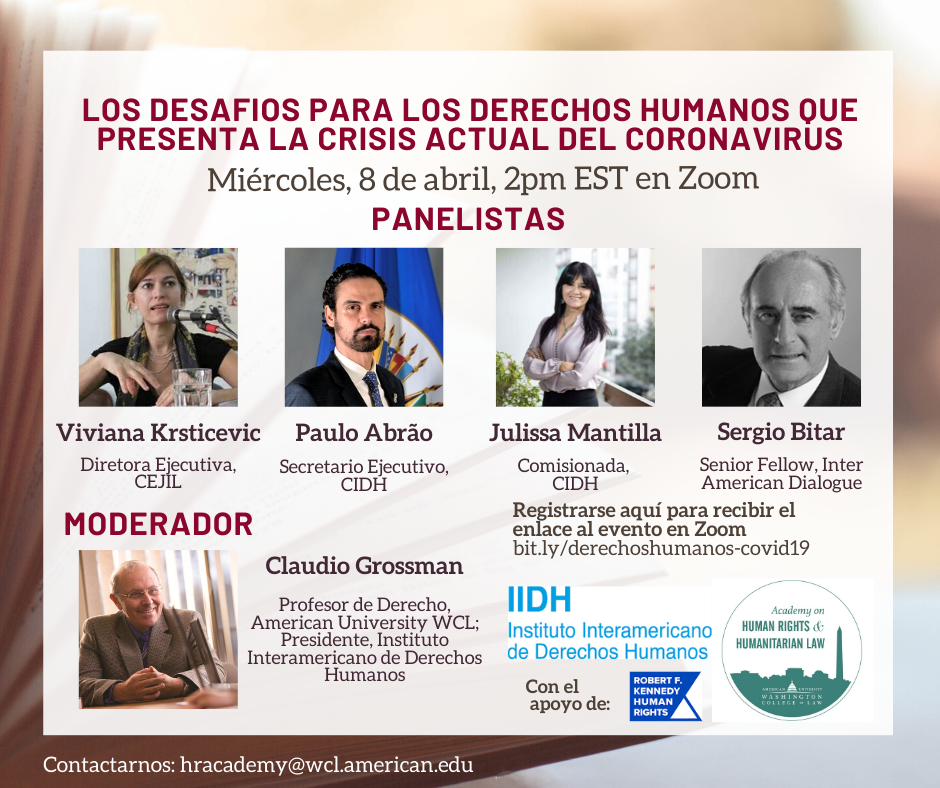AUWCL Professors Respond to COVID-19 Crisis with Expert Analysis, Panel Discussion
April 6, 2020
Amid the ongoing coronavirus pandemic, American University Washington College of Law faculty have worked to provide their legal expertise on COVID-related issues and concerns impacting both the nation and the globe – from social distancing regulations in the U.S. to the effect on human rights in Latin America.
Professor Lindsay Wiley
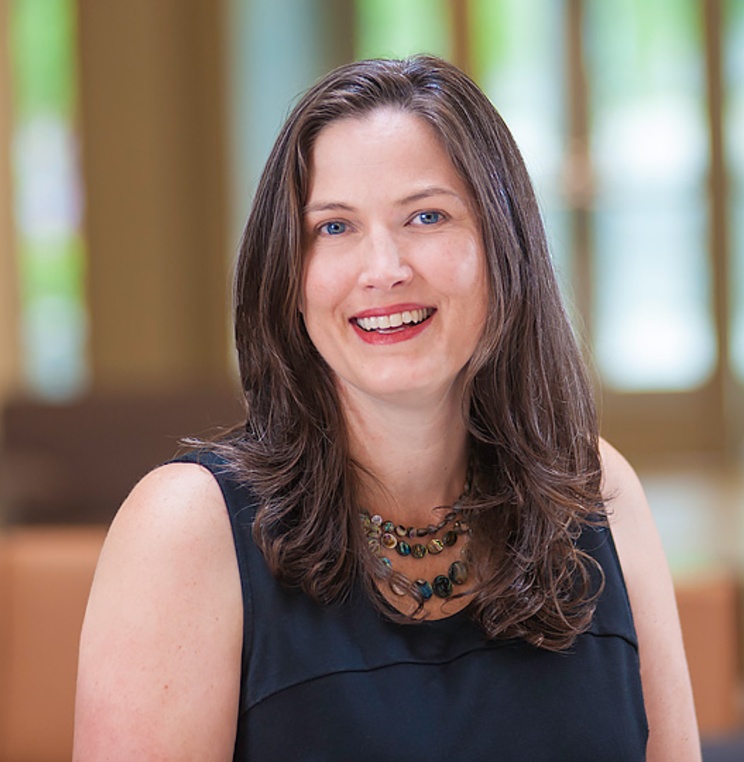
Professor and Director of AUWCL’s Health Law and Policy Program Lindsay Wiley has done a number of interviews and written various op-ed pieces and academic commentaries on the pandemic, including a discussion of the roles and responsibilities of the government and courts for the Journal of the American Medical Association, the importance of social supports to enable people in low-income communities and communities of color to safely shelter in place for Health Affairs Blog, the use of U.S. lockdowns to slow the spread for Vox, quarantines for travelers with NPR, the risks associated with heavy-handed enforcement with PBS Newshour, and a forthcoming essay in the Harvard Law Review Forum.
In a Washington Post op-ed about lawsuits arising from the pandemic response, Wiley writes that even in the midst of this emergency, government action is subject to scrutiny and intervention by the courts.
“In times of crisis, just as in routine times, courts balance individual rights against collective needs,” Wiley explains. “The balancing mandated by our Constitution demands that leaders communicate not only the purpose of their actions — which is breathtakingly compelling in this crisis — but also how the unprecedented public health orders they have issued will further a rational, evidence-based plan to achieve that goal. A constitutional challenge might be an appropriate and necessary step in developing a sustainable, long-term strategy that abides by the rule of law.”
Professor Robert Tsai
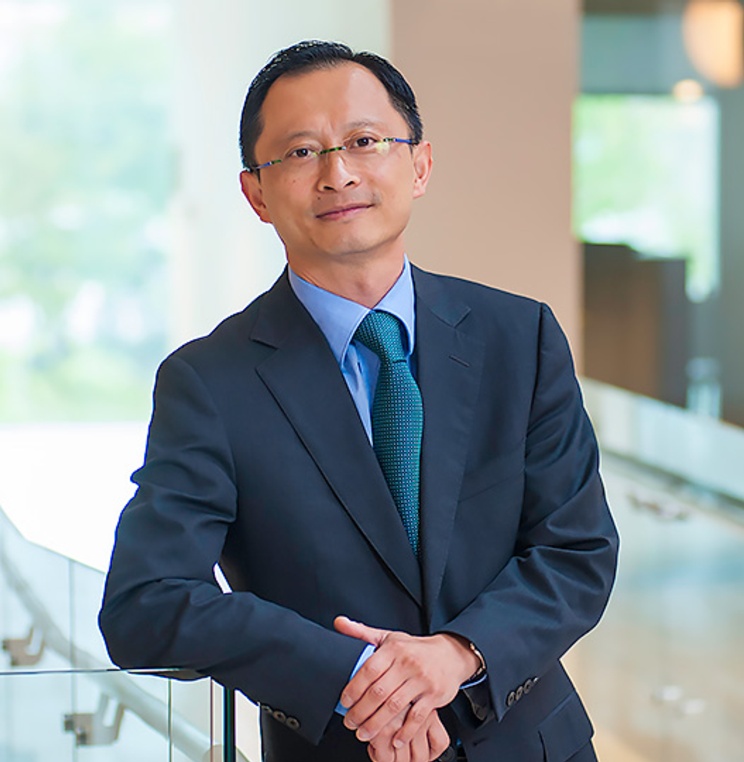
Professor Robert Tsai recently joined the “Lawyer 2 Lawyer” podcast on the Legal Talk Network to explore the respective roles of the federal and state governments during the pandemic, the tug of war between the governors and the president, and leadership during a crisis.
“We have different models of leadership,” Tsai said. “We have President Trump, who has significant power despite the differently structured basis of emergency power. He still has a number of sources of authority he has not yet evoked, and even when he has the Defense Production Act, he has been reluctant to go full bore…In the meantime, all of these governors and mayors have jumped into the fray to use their powers creatively and expansively.”
Tsai also wrote a piece on the structure of emergency governance for the Boston Review, writing that it is easy to simply interpret the disorder of the nation’s coronavirus response through a lens of unpreparedness and partisanship, and overlook its complexity.
Visiting Professor Kim Wehle
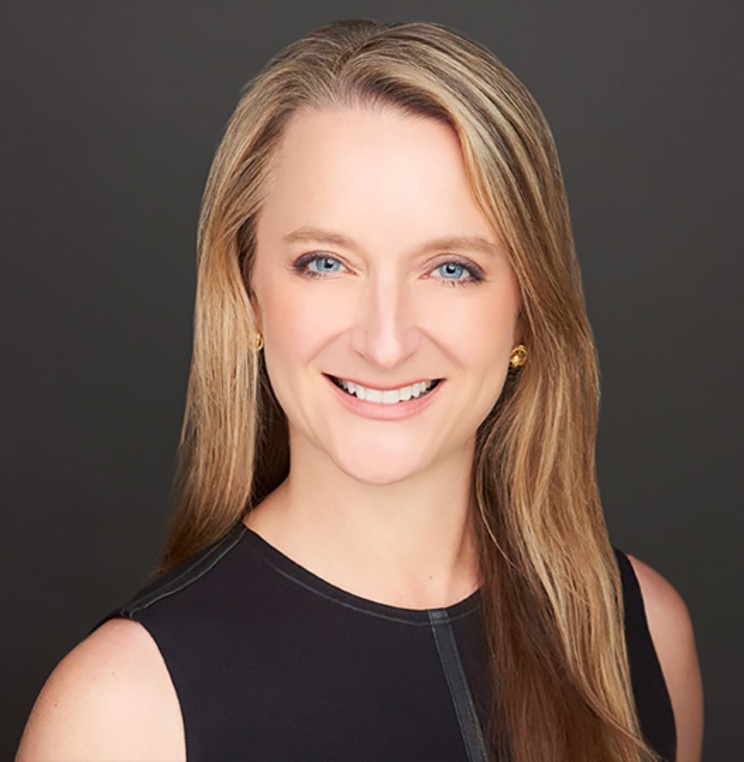
The Program on Law and Government’s Visiting Professor Kim Wehle has penned a number of opinion pieces on COVID-related issues, from presidential power to local government. In The Atlantic, she writes that Trump has “turned the unitary-executive theory on its head” by not using utilizing these enhanced presidential powers to produce protections amid the pandemic, nor taking accountability. Wehle has also discussed the powers of state and federal governments under the Constitution for The Bulwark.
In The Hill, Wehle analyzes the political implications of the election this November – whether we head to the polls or not.
“If the federal election does not happen in November, which at this moment in time is not impossible, the Constitution will be left in tatters,” Wehle writes. “Even if the election still happens in November, without federal legislation, a pandemic could produce a hodgepodge of outcomes, such as massive disenfranchisement and skewed results, with only a fraction of the most committed voters braving it to the physical polls.”
Dean Emeritus and Professor Claudio Grossman
Professor Claudio Grossman, dean emeritus and Raymond I. Geraldson Scholar for International and Humanitarian Law, moderated an online panel discussion addressing the impact of COVID-19 on human rights in Latin America.
Panelists included Viviana Krsticevic, executive director of CEJIL; Paulo Abrão, executive secretary of CIDH; Julissa Mantilla, commissioner of CIDH; and Sergio Bitar, senior fellow at Inter-American Dialogue. The crisis has created or aggravated serious issues, including abuse of emergency powers, impacting the most vulnerable, including victims of domestic violence, immigrants, the poor, and prisoners. The panel stressed the importance of international cooperation, offered policy recommendations and debated the role of the state as an entity responsible to adopt preventive and remedial public policies in matters of life and death that should not be simply left to market forces.
The event—held in Spanish and co-sponsored by the Academy of Human Rights and Humanitarian Law and the Instituto Interamericano de Derechos Humanos with support from the Robert F. Kennedy Human Rights Center—was held Wednesday, April 8 at 2 p.m. Watch the online discussion here.
Professor Jennifer Daskal
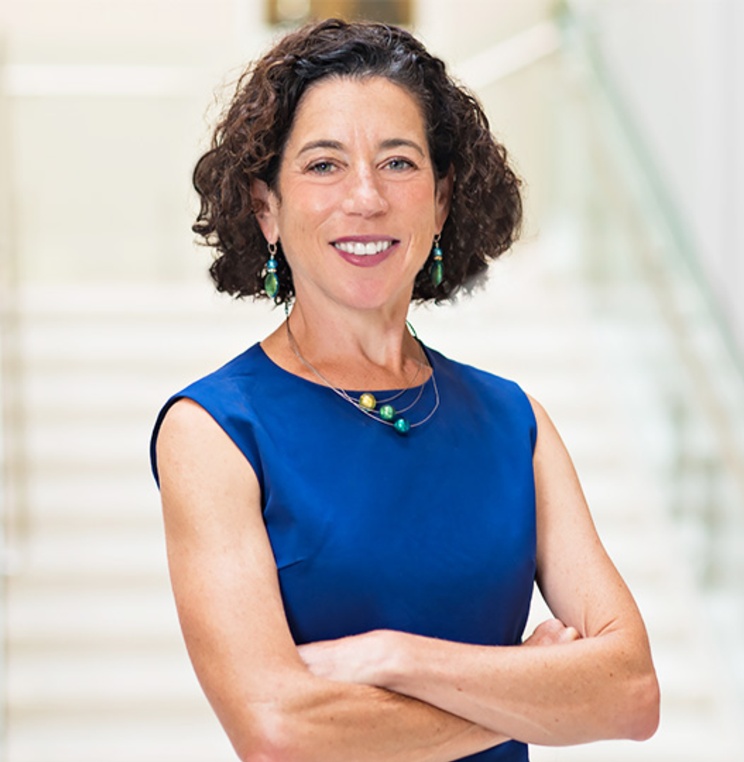
Tech, Law, and Security Program Faculty Director, Professor Jennifer Daskal, has co-penned a piece for The Conversation with School of Communication Interim Dean and internet governance scholar Laura DeNardis on cyber vulnerabilities laid bare by society’s dependence on the internet amid the coronavirus pandemic. In Slate’s Future Tense series, Daskal co-wrote an analysis on the key lessons from China on the Coronavirus and the dangers of app consolidation. Daskal also co-hosted a webinar on confronting viral COVID-19 disinformation as part of the joint TLS and Slate Free Speech Project.
In an interview with Law360, Daskal discusses location data privacy during the pandemic, noting that using location data to track specific people in the U.S. may violate the Fourth Amendment’s ban on unreasonable search and seizures.
"There should be a clear line between population-level analysis and individualized tracking, which raises much greater privacy and civil liberties concerns," Daskal says.
Trial Advocacy Associate Director Elizabeth Lippy
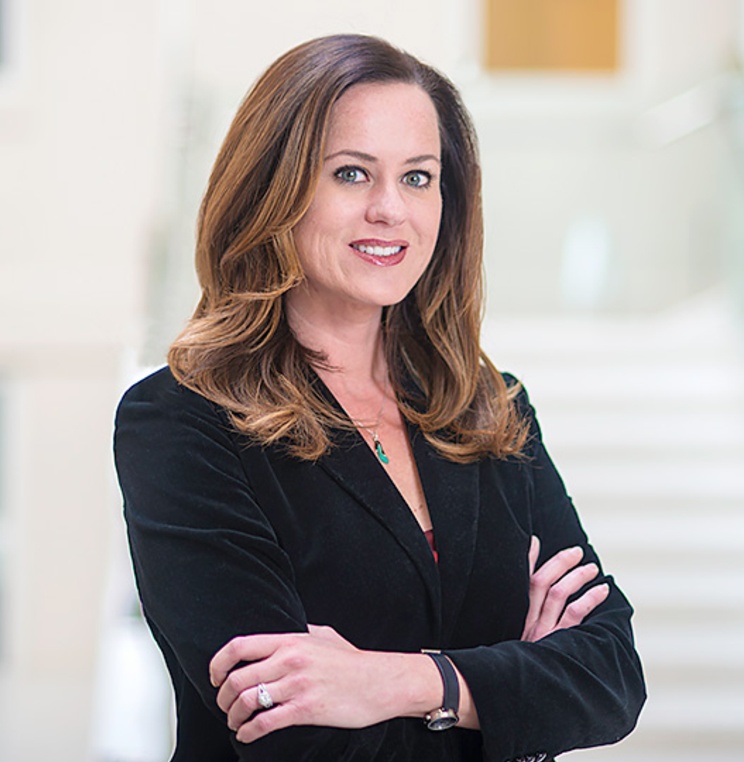
Elizabeth Lippy, associate director of the Stephen S. Weinstein Trial Advocacy Program, co-penned a two part series for Bloomberg Law discussing the need for courts to offer hearings in an online format, analyzing the available online formats, and outlining tips for tele-advocacy online skills. Through this two part series, Lippy coins the use of technology to conduct online video hearings as “tele-advocacy” and discusses the similarities between Trial Advocacy in-person and Trial Advocacy in an online forum.
Lippy’s “tele-advocacy” tips include familiarizing yourself with the online platform (similar to familiarizing yourself to a courtroom), ways to prepare witnesses for “tele-advocacy,” using exhibits to further emphasize arguments; and maintaining Trial Advocacy skills such as speaking slowly, maintaining good eye contact, and, above all else, exercising patience.
“Maybe after our country gets past this pandemic, our ‘new normal’ will become the status quo and some of these hearings we were all so hesitant to embrace in an online format will continue as such far into the future,” Lippy writes.
